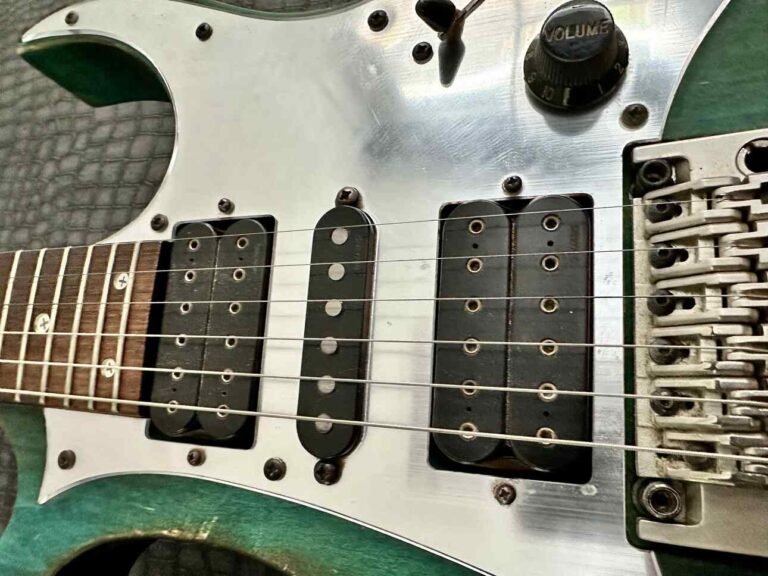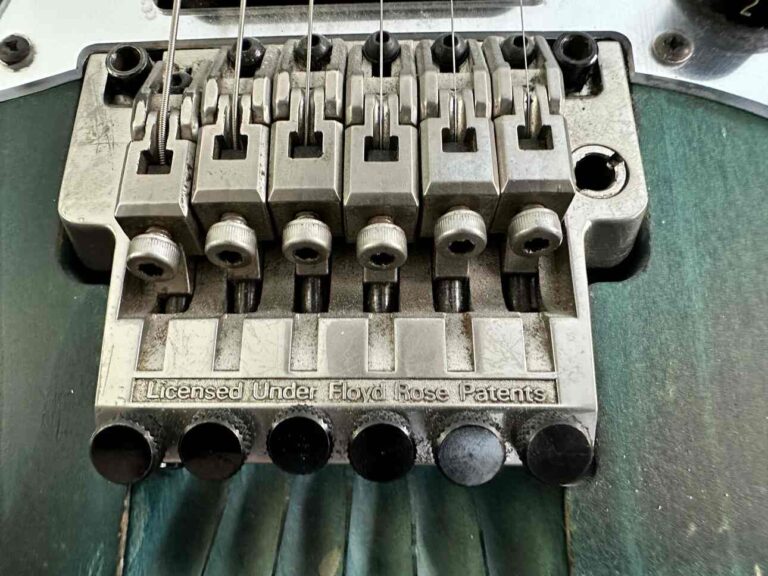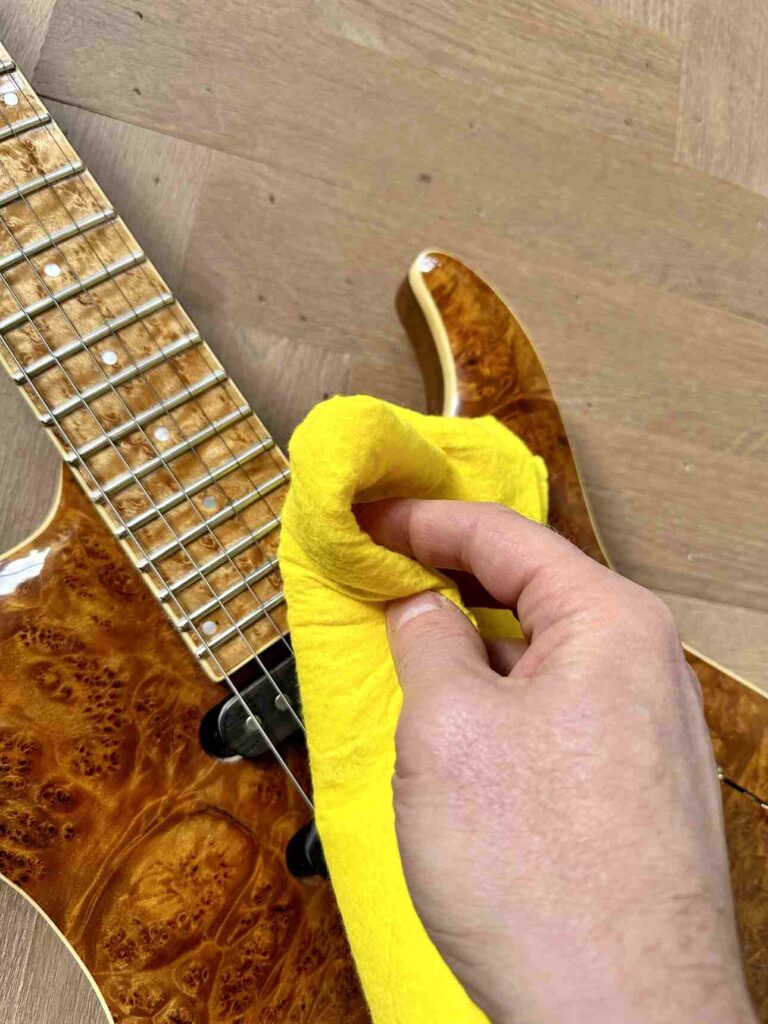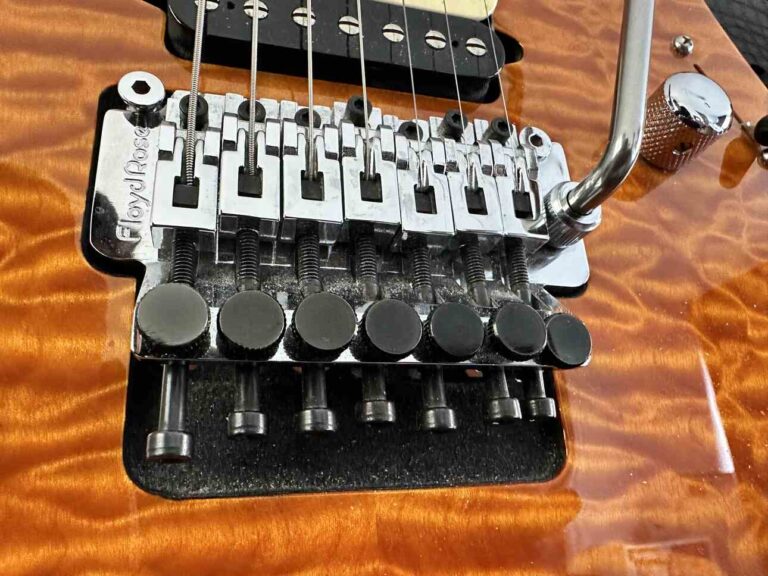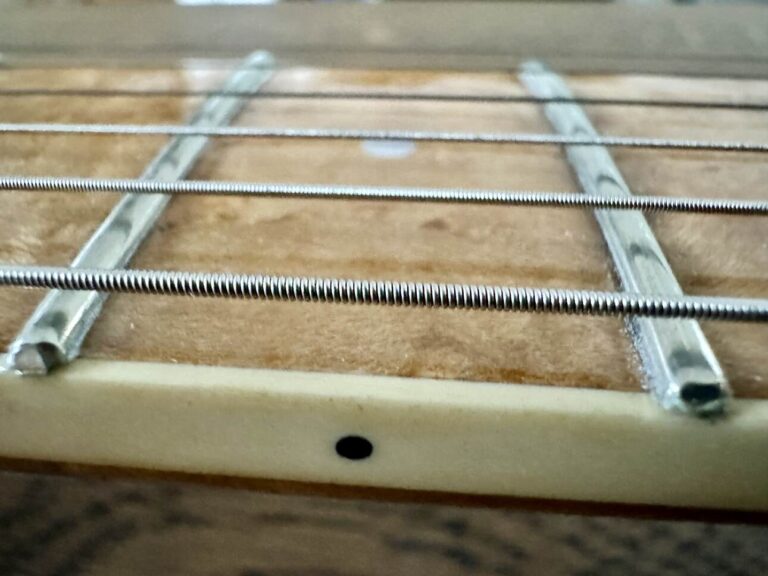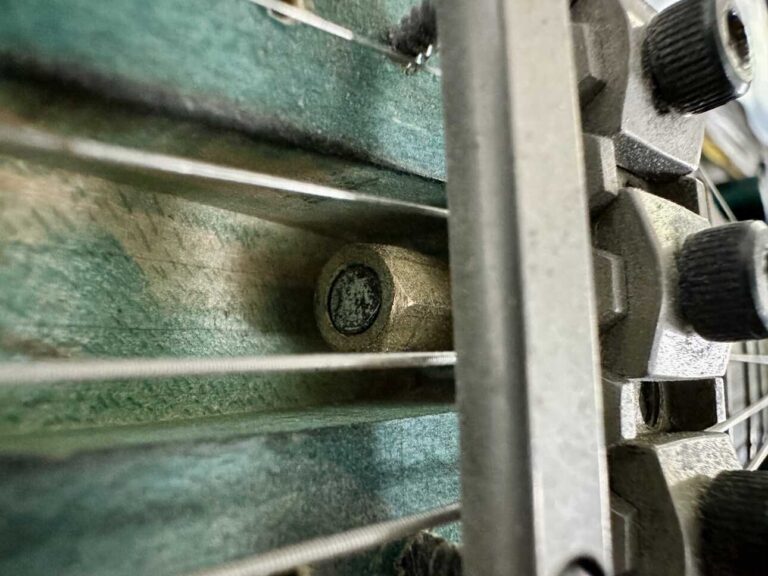How Long Do Frets Last? Guitar Fret Wear and Lifespan
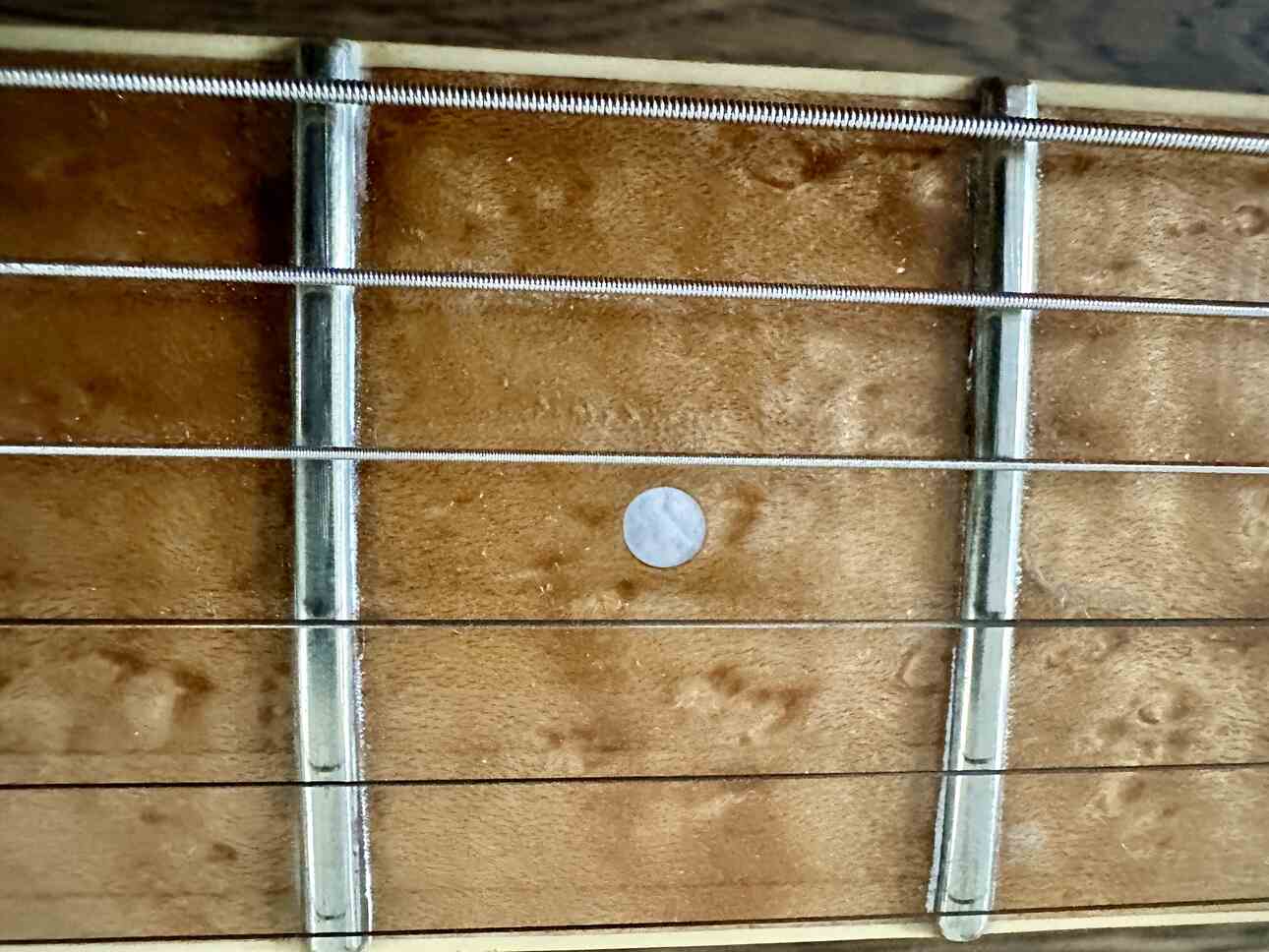
There’s no definitive answer to how long do guitar frets last. It depends on a few things. Your frets will last longer if your guitar’s made with top-notch materials, you play it less often and keep it in good shape.
Some guys can go years without having to change their frets. But if you play a lot, you might need more frequent fixes. You might wear out frets in a few years. Stainless steel frets usually outlast nickel ones.
Worn-out fretwire can make your guitar sound buzzy and out of tune, and that’s no fun for anyone.
To keep your guitar sounding great, pay attention to what makes fret wear down and how to keep it in good condition.
Key Takeaways
- The fret material, how often you play your guitar, and how well you look after it influences the lifespan of your guitar frets;
- Keep an ear out for signs of wear, such as buzzing sounds or trouble staying in tune, so you can deal with any issues before they get worse;
- Good upkeep and regular maintenance can make that your guitar frets can last longer.
Fret Longevity Factors
Playing Style and Frequency
Guitar frets have a lifespan that varies depending on how you handle your axe. If you hit the strings hard, expect those frets to wear down quicker.
But the frets last a lot longer if you’re more laid-back or don’t play as often.
Fret Material
The fret wire material matters a lot for how long they’ll hold up. Nickel frets are pretty standard but can get dinged up faster.
Then there’s stainless steel. It’s tough as nails and keeps kicking for ages because it’s way harder to wear down. If you want frets that keep up with heavy playing, stainless steel is the way.
Here’s a quick comparison of the two materials:
| MATERIAL | DURABILITY | MAINTENANCE | COST |
|---|---|---|---|
| Nickel Frets | Lower | More Often | Lower |
| Stainless Steel | Higher | Less Often | Higher |
Guitar Maintenance
Taking good care of your guitar is key to making the frets last. Sometimes, giving them a little TLC with a fret level and crown job can make a big difference. It keeps them in prime condition for a smooth play.
Remember to polish your frets. They’re like armor against daily wear and tear. Regular polishing as part of your guitar care routine can help them stay shiny and slow the wear rate.
Understanding Guitar Frets
Materials and Design
Frets are super important for how your guitar feels and sounds. You’ve got two main types: stainless steel and nickel alloy.
Stainless steel is tough and resists wear very well. Nickel has a softer touch and gives off classic vibes.
The shape of the frets is a big deal, too. Bigger, wider frets mean there’s more metal for the strings to press against, so they can handle more action before they give out.
But if you’ve got skinny and tall frets, they might not last as long if you’re always shredding. Keep that in mind when you’re picking out your guitar or planning for a fret replacement.
Action, which is how high the strings sit off the fretboard, can get thrown off, too
Role in Guitar Playability
Yeah, if you play your guitar a lot, those frets will show it. They’ll start to wear down, which can mess with the intonation – that’s how in tune the guitar plays up and down the neck.
Plus, action, which is how high the strings sit off the fretboard, can get thrown off, too. When frets are worn, you might get a buzz or find some notes just don’t sound right.
Frets are also about comfort. They come in different sizes and materials that change how the guitar feels when you play. Take jumbo frets, for example. You see them a lot on electric guitars. They’re pretty chunky, making things like bending strings or grabbing chords easier on your fingers.
Signs of Fret Wear
Visual Inspection
For sure, when your frets start to get little dents or divots where the strings meet them, that’s a telltale sign they’re wearing down. Take a close look down the neck of your guitar and check out the frets. Spot any indents?
If the dents are deep, it’s a clear sign your frets are getting tired and might need some work. Think leveling or even replacing, to get your guitar back in top shape.
Impact on Sound and Intonation
When frets wear out, it affects not only the guitar’s feel but also its sound.
You might hear that the pitch isn’t quite right on some notes or that they sound less clear and accurate.
At first, these changes in sound can be easy to miss, but if you don’t deal with them, they’ll become more noticeable and can really affect your playing.
It’s one of those things where a little fix now saves you from a bigger headache later.
Common Issues: Buzzing and Dead Notes
You’ll hear fret buzz when your string rattles against a fret that’s not quite right anymore, maybe because it’s uneven or just plain worn out. If your guitar starts sounding like a bumblebee, giving those frets a good look-over is a good idea.
And then there’s the issue of dead notes. That’s when you hit a note and get… Nothing. Just a thud or a weak sound because the string can’t vibrate like it’s supposed to.
When that happens, it clearly means, “check your frets!” because they could be the culprit messing with your sound.
Make Frets Last Longer – Maintenance and Extending Fret Life
Regular Cleaning
Keeping your frets clean is a solid move to make them last longer. Over time, grime, sweat, and oils from your fingers can damage them.
It’s not just about looking good; cleaning it off helps prevent the frets from wearing down prematurely.
Grab a soft cloth and wipe them after your playing sessions. If you want to get fancy, there are special fret-cleaning products, too. And don’t forget to polish them.
It’s not just for shine; it helps keep everything smooth so you can slide up and down the neck without hang-ups.
Proper Technique
The way you play is important for your frets. If you’re mashing down on the strings like there’s no tomorrow, you’ll wear out your frets faster.
Ease up a bit, and you’ll not only save your frets, but you’ll also get a smoother playing experience.
And a capo can be a real fret-saver. It spreads the wear across the fretboard because you’re not just constantly hammering away at the same old spots.
Plus, it lets you mix up your playing positions, which is excellent for your frets and music. Keep that touch light; your frets will thank you by sticking around longer.
Periodic Fret Leveling and Crowning
Fret leveling and crowning are like tune-ups for your frets. After you’ve been playing for a while, frets can become uneven, leading to buzz and wonky intonation.
Leveling evens the frets so they’re all the same height and eliminates high spots. Crowning is about getting that excellent round shape back on each fret. This allows your strings to make clean contact and everything sounds just right.
You’ll want to find a pro guitar tech who knows their stuff to do these jobs. They have the tools and the know-how to get your frets feeling as good as new so your guitar plays like a dream.
Frequently Asked Questions
What are the signs that my guitar frets need replacing?
You’ll know it’s time for a fret replacement when your guitar doesn’t feel as smooth to play and you spot indentations on the frets. If your guitar starts buzzing or the notes don’t sound quite right, these are clear indicators that the frets are worn down.
How frequently should guitar frets be replaced for optimal playability?
How often you swap out your frets depends on how much you jam out. If you’re strumming daily, you might be looking at getting new frets every couple of years. They could last way longer if you’re more of a weekend warrior. Keep an eye on their condition and get a pro’s opinion when in doubt.
Is there a difference in longevity between stainless steel frets and regular frets?
Absolutely. Stainless steel frets are tough cookies. They hold up against wear much better than the standard nickel silver frets. They might cost you more and be a bit trickier to replace, but many players find them worth it for their longevity.
Can you estimate the average lifespan of frets on an acoustic guitar?
For an acoustic guitar, frets can keep up the excellent work for around 5 to 10 years, but that’s a ballpark figure. It swings depending on how often you play and how hard you go on those strings.
What’s the typical cost range for refretting a guitar?
You might be shelling out anywhere from $200 to $600. It’s not just about slapping new frets on. You want someone skilled to do it so your guitar returns to you feeling brand new.
Does the type of music I play affect how quickly my guitar frets wear out
For sure, the genre you’re into plays a part. If you’re big on bends and vibrato or use heavier strings, you’re looking at more frequent fret wear. Just something to think about when planning for guitar maintenance.
When should I consider fretwear on my guitar?
Look for dents or unevenness on your frets. These issues can mess with your sound and make playing less smooth. That’s your cue to think about fretwear.
What are the advantages of stainless steel frets over other materials?
Stainless steel frets are tough. They resist wear better and give you a slick feel for a long time. They’re a solid choice if you want frets that last.
How can I prolong the life of my frets?
Take care of your frets by keeping them clean and avoiding too much string bending. Regular maintenance like fret dressing can also extend their life.
When should I consider to have my guitar refretted?
When frets are too worn for a simple fix or if they mess with your playing, consider a re-fret. Don’t wait too long; it might affect your guitar’s sound.
Do frets on more expensive guitars last longer?
Not necessarily. Fret wear is about how you play and the fret material, not the guitar’s price. High-quality materials could mean longer-lasting frets. But you can find stainless steel upgrades on guitars at various price points.

